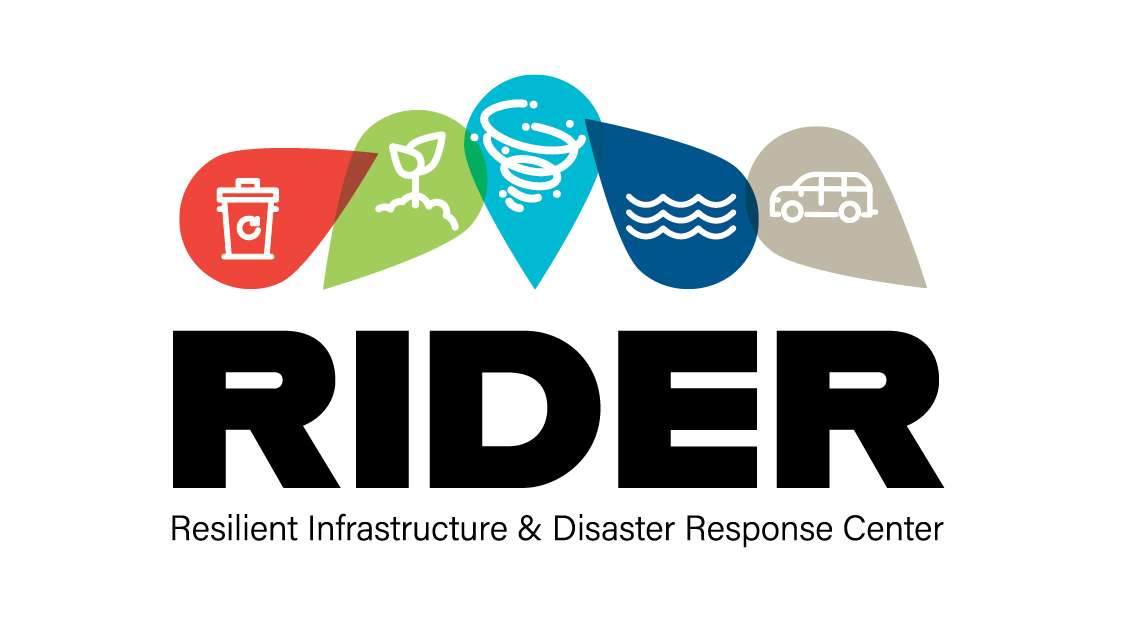This story originally appeared on FAMU-FSU Engineering News: Engineering researchers awarded grant to study natural disaster response
When Hurricane Michael devastated rural inland communities in the Florida Panhandle in 2018, public libraries played a critical role in the natural disaster response. It also exposed the need for improved procedures and policies for public libraries responding to natural disasters.
Now, Florida State University College of Communication & Information Professor and Associate Dean for Research Marcia A. Mardis and Senior Research Associate Faye R. Jones, along with FAMU-FSU College of Engineering Associate Professor Eren Erman Ozguven are helping to develop operational procedures for public libraries during natural disasters through a grant from the Institute for Museum and Library Services (IMLS).
“Something people don’t realize widely is that many public librarians are contractually obligated first responders, so when a disaster comes to their community, they don't have the option to just evacuate,” Mardis said. “They need to stay, and they take that public service very seriously. They need to think really hard about what they're going to be doing to support their communities.”
Researchers were awarded $667,113 for the three-year project, which will focus on the response to Hurricane Michael in the Panhandle region, particularly in Bay, Gulf and Calhoun counties, to figure out where the most vulnerable communities are and how to best target support for them.
When Hurricane Michael hit the Panhandle, Mardis and Jones were already collaborating with the University of Texas on a project examining the long-term impacts of how libraries support their communities before, during and after a natural disaster. The vulnerabilities in rural communities and the public library response exposed by Hurricane Michael prompted Mardis and Jones to focus their efforts locally.
“We found that there’s a lot of policy work to be done, and standard operating procedures and manuals that need to be updated,” Jones said. “But librarians don't have much time to go back and think about how they're going to improve their operations, and sometimes they just don't want to; there's stress in having to relive these experiences.”
In many of these vulnerable and rural communities, public libraries are the source of social services for their small town. This means that when a hurricane or other natural disaster hits, the public library becomes one of the only resources serving that community. Although critical, researchers noticed that libraries were not as well-equipped as other emergency response branches.
“It took the sort of scrappiness of the librarian to see the opportunities there without necessarily having regulations in place telling them what to do, and they ended up working together with community organizations,” Mardis said. “For this project, we’re trying to see if there is a way to strengthen those relationships, while formalizing and tailoring them to what each community needs.”
Ozguven is a civil and environmental engineer with a focus on roadways and transportation and is the director of Resilient Infrastructure and Disaster Response (RIDER) Center. For the past five years, his research has focused on the resilience of communities in disasters with a specific focus on underserved and disadvantaged segments of the population. Mardis and Jones became aware of Ozguven after reading his article, “How rural areas like Florida’s Panhandle can become more hurricane-ready.”
“Libraries are critical to support these underserved and disadvantaged groups because libraries and librarians actually are part of their communities, and they are also the first responders when a hurricane hits,” Ozguven said. “Hurricane Michael hit an area where we didn't see a hurricane for a very long time, especially a Category 5 hurricane. These rural inland communities didn't have the muscle memory, and the problem is even more challenging with the pandemic. Right now, librarians need to be ready to serve with more tools than ever before.”
Using Geographical Information Systems (GIS), Ozguven studies populations, where people live, how well the roadways are and how accessible hospitals are to a community. As a part of this project, he hopes to establish a GIS module that gives librarians the ability to see where vulnerable populations are located and distinguish the resource that is most accessible to them.
“State and city groups like Department of Transportation and Emergency Management have their own GIS specialist, but their job is totally different,” Ozguven said. “Librarians who would have GIS basic training will respond directly when the hurricane hits and report and monitor library access before anybody from a state or city government shows up.”
In addition to equipping librarians with GIS modules, the project also aims to foster collaboration and formalized lines of communication between librarians and other first responders, such as Emergency Operations and the 911 Call Center.
The team is partnering with the Bay, Calhoun, and Gulf library systems and the project’s advisory board includes Scott Pickett from the FSU College of Medicine and David Berlan from the FSU Askew School of Public Administration and Policy. Other notable board members include Amy L. Johnson, State Librarian of Florida; Jared Moskowitz, State of Florida EOC Director; and David Zierden, the State Climatologist of Florida.
“Disaster resilience has to be multidisciplinary and we need to study it from multiple perspectives,” Ozguven said. “Without that multidisciplinary nature, I don't think it's possible to achieve this community resilience that we're looking for.”
Researchers plan to use surveys and focus groups to get a sense of what people already have in place when faced with a natural disaster.
“This is a very exciting project, and it can't get any better than this,” Jones said. “We are going to impact people's lives with this, and they’ll have the tools, the policies and the relationships that they need to impact change in their communities.”
Ultimately, the goal is for policy improvements to be scalable and transferable to any situation where a library will be used to help people. Researchers also plan to include a process that librarians can use to continuously modify and improve their procedures for future community resilience.
“We're going to be helping the librarians understand how to be able to use GIS for their own ongoing analysis and sense-making of their communities, and we're building a suite of tools and documentation to leave with them as well,” Mardis said. “It’s a research project, but it's a very action-oriented research project.”
To learn more about the project, visit imls.gov.



